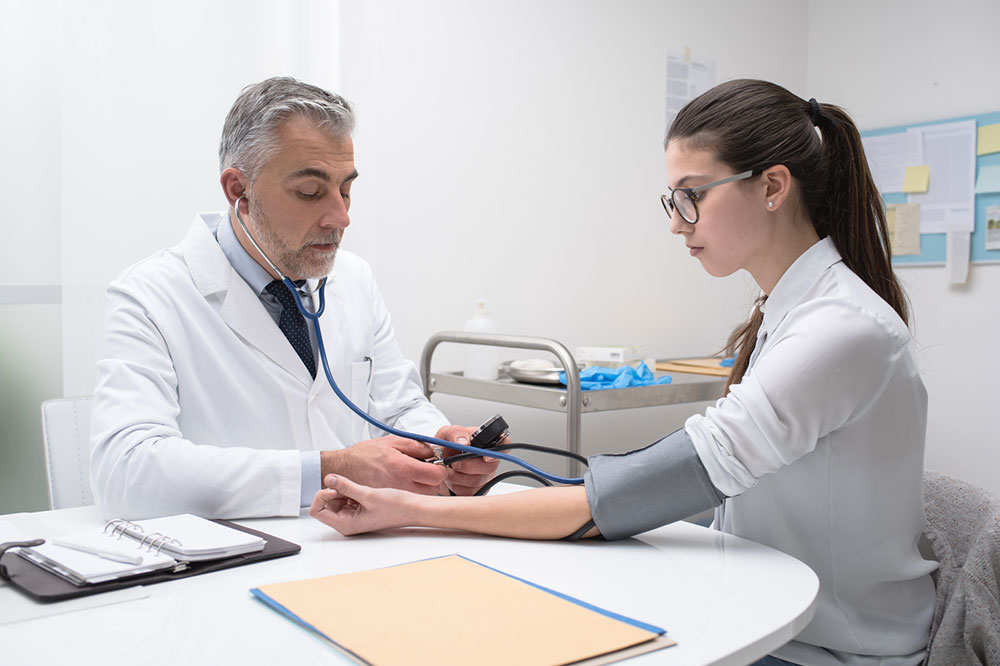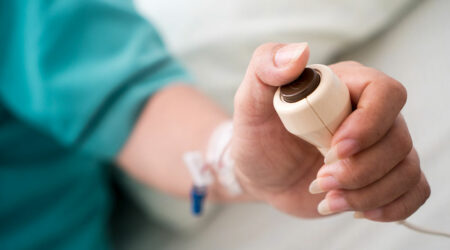
High blood sugar – Causes, symptoms, and treatment
Glucose, also known as blood sugar, is the primary sugar content in the blood and the main source of energy. The body gathers the required amount of blood sugar from the food one eats. However, if the body accumulates more blood sugar than needed, the condition is called diabetes. It is a severe disease that can cause problems over time.
Causes
Also known as hyperglycemia, one’s blood sugar level may shoot up due to multiple reasons. For instance, in people who already have borderline diabetes, not consuming oral glucose-lowering medicine or insulin can trigger the condition. Having too many carbohydrates for the amount of insulin one takes can also lead to the problem. In addition, since exercise is required to digest sugar, those who remain inactive throughout the day are also at risk.
High blood sugar can also arise from certain underlying health conditions like the dawn phenomenon, endocrine disorders, cystic fibrosis, or pancreatic diseases like pancreatitis and pancreatic cancer. Even patients who have a history of surgery or trauma are at risk. Experts also suggest that a person’s blood sugar can increase if they have gestational diabetes, which sometimes occurs during pregnancies due to decreased insulin sensitivity.
Symptoms
Those at risk of type 1 diabetes should know the early signs of the condition. If the symptoms are not treated, it can lead to complications like ketoacidosis. In ketoacidosis, a toxic acid called ketones builds up in the blood. It is a medical emergency that can even lead to coma or death if not addressed immediately. Some of the early symptoms of high blood sugar include:
- Increased hunger and thirst
- Blurred vision
- Frequent urination
- Frequent headache
- Weakness or tiredness
- Unexplained weight loss
- Infection around the vaginal area and skin infection
- Slow healing of sores and cuts
Diagnosis
High blood sugar or hyperglycemia can be diagnosed with blood tests, such as the fasting plasma glucose (FPG) test, A1C test, or a fructosamine test. Further, it can also be diagnosed using a glucose monitor or by the oral glucose tolerance test (OGTT). In this test, the patient is given a glucose mixture, and the body’s glucose response is monitored. Frequent blood glucose monitoring helps manage blood sugar and prevent or detect hyperglycemia.
Treatment
One can manage the signs of high blood sugar by eating healthy, being active, and working towards lowering stress levels. However, the specific line of treatment can differ based on the type of diabetes. For instance, insulin plays a significant role in managing blood sugar levels among people with type 1 diabetes, while oral medications are effective for people with type 2 diabetes.
Foods and natural remedies
Besides medication, patients can also consume various foods and follow different natural remedies for managing the condition effectively. Experts say that neem, mango leaves, bitter melon juice, Indian blackberry seeds, ginger, fenugreek powder, curry leaves, cinnamon, and aloe vera are particularly good for people with high blood sugar.
Prevention
High blood sugar is a lifelong ailment. Hence, prevention is always better to stay away from it. Here are some tips to follow:
- Exercise daily and consult a doctor or fitness trainer to create the daily exercise plan.
- Adhere to a meal or a diet plan; make a point to consume only the food containing lean protein, fat, and sugar.
- Maintain a healthy weight.
- Quit smoking and limit or stop alcohol consumption
- Drink more water. Water helps remove excess sugar from the blood via urine and prevents dehydration.
Dealing with diabetes can be challenging. However, learning about the condition and becoming aware of its causes, symptoms, and other aspects can help manage the problem effectively.




